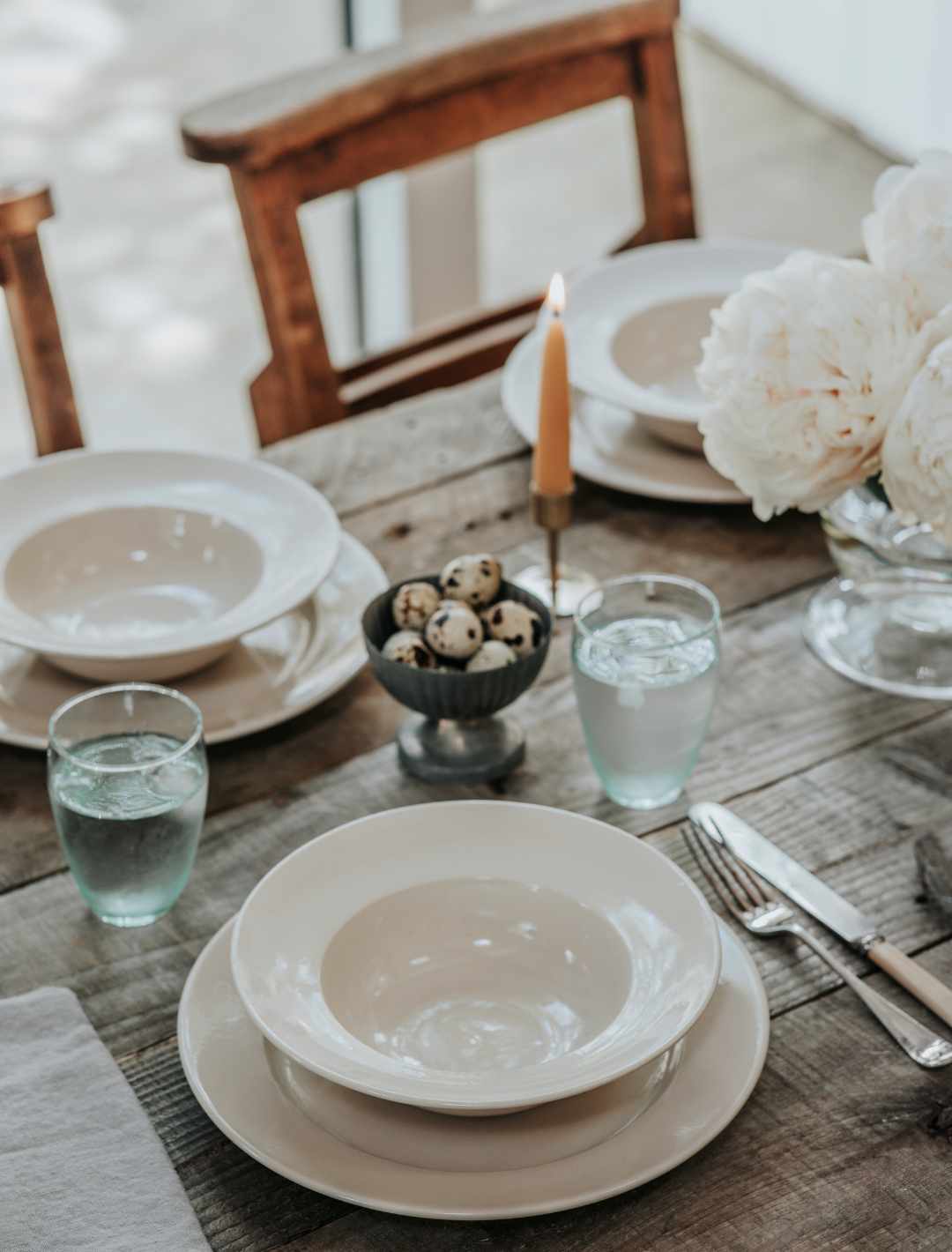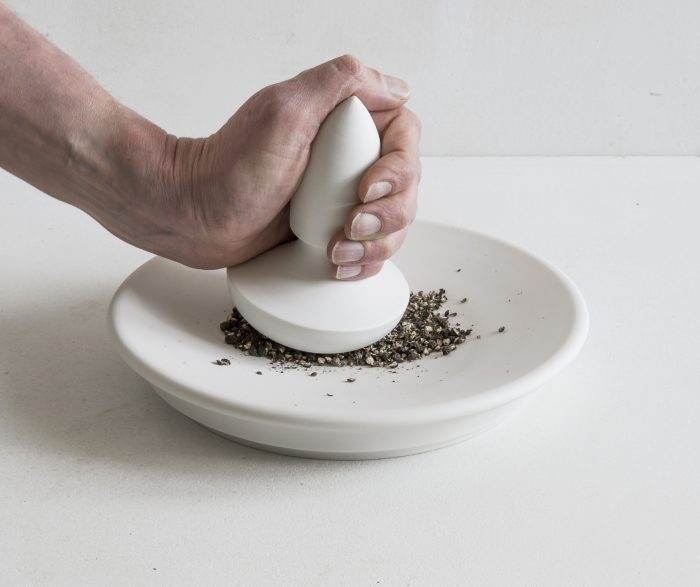Caring for our planet and limiting our environmental impact is something that Julian is incredibly passionate about and we are always seeking ways to improve our practices.
John Julian pieces are designed to last a lifetime and then to be passed down the generations. Designed with modern simplicity combining form and function, they outlast trends and will never go out of style.
One of the biggest issues for potteries and ceramic manufacturers is the amount of energy needed to fire the kilns, especially to fire porcelain. There is much debate and work going in to how to make this greener. At John Julian we fire the majority of our pottery once at a high heat rather than the more common practice of firing twice. We do this because firing to a high temperature makes the porcelain incredibly strong and durable, much less susceptible to cracks and chips, and will last a lifetime and longer. The heat from the kiln keeps us warm in winter. In time we aim to utilise this with a heat recovery system.
John Julian is a member of the British Ceramic Confederation and Julian is a part of the Energy and Emissions Group which is working towards net zero emissions by 2050.
We manufacture and sell from our workshop in rural Wiltshire. Our clay is made in Stoke on Trent as part of the pottery tradition there and our porcelains are predominately made up of clay dug in Cornwall. We manufacture in small batches and often make pieces to order which means limited wastage. Any items with noticeable imperfections are deemed as Seconds which we make available to purchase during our popular annual online seconds sale.
Our packaging is also carefully considered and is as eco friendly as possible. We use cardboard boxes to ship our ceramics which can all be recycled, composted or reused. We use recycled shredded cardboard from a renewable source as void filler (instead of bubble wrap) that can be reused or easily composted. It also makes great mulch on vegetable patches. We also use 100% biodegradable and fully compostable packing peanuts. Recycled paper, kraft paper and newsprint is used as much as possible and we occasionally re-use bubble wrap and other plastic material in our packaging but we never buy in new.


